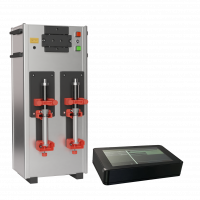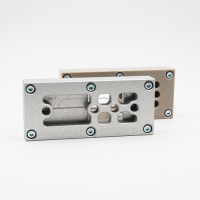The term lab-on-a-chip refers to a miniaturized, microfluidic system that enables laboratory analysis on a single chip. This technology can be used to image extensive biological, chemical and physical processes. To. The main applications in the field of lab-on-a-chip include human diagnostics, DNA analysis, chemical synthesis.
Little Things Factory supplies lab on chip components made of glass, quartz and glass-silicon composite materials. These components are used as micro reactors in the field of medical and pharmaceutical technology as well as in the form of fluidic chips in the field of diagnostics, medical applications and implantology. As materials glass, quartz and glass-silicon combinations are ideal for these applications, since they are materials which can resist difficult environmental conditions such as, for example, high temperatures and chemicals. They nonetheless demonstrate a high degree of bio-compatibility. These characteristics distinguish the materials markedly from the polymer substances standardly used in these fields of application.
For the creation of fluidic components and bio-chips LTF uses a wide range of structuring processes which have been employed for many years in the field of MEMS cap wafers, including, for example, micro-sandblasting and wet-chemical structuring of glass and quartz.The manufacture of these fluidic chips can be carried out inexpensively based on 6″ or 8″ wafers.







